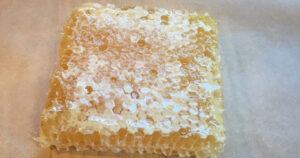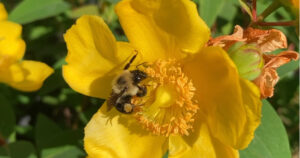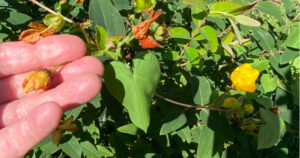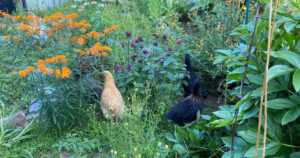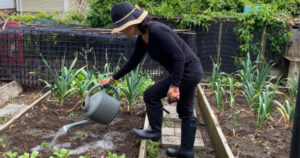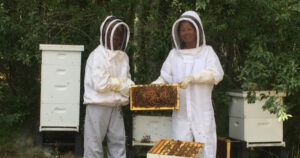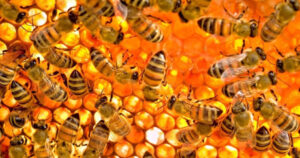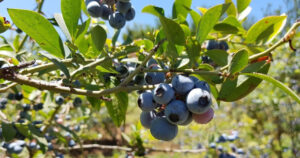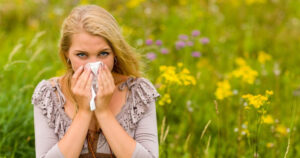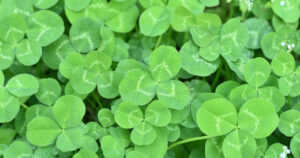Honey has been a part of our diet since ancient times. Its health benefits are numerous and known across time and cultures. Honey feeds the bacteria that is good for us and at the same time fights the bad ones. Honey produced in New Zealand and Australia is also shown to inhibit bacteria causing dental plaque. A medical study published in 2004 claims that topically applied honey is consistently … [Read more...]
Bees’ buzz is more powerful for pollination than for defense or flight
Following extensive research, Dr. David Pritchard, of the University of Stirling's Natural Sciences Department found that bees buzz in different vibration patterns dependent on the task that needs to be completed. For example, the buzz used to pollinate flowers is much more powerful (up to 50G - 10 times more than a fighter pilot experiences) than the buzz used in a defensive or flight situation. … [Read more...]
What’s Deadheading and Why You Should Do it to Your Garden
Deadheading is a gardening process that makes the plant flower again. Once a flower fades, plants get a signal that it should create a seed head. By removing the dead flower and dry petals, plant does not have a seed head to work on, so it can create another flower. The best thing about this is that we don’t have to get dirty and sweating as most other gardening chores requires us to do. You can … [Read more...]
4 Easy Steps To A Chemical-Free Backyard
With schools closed and limited day care available, many kids spend their pandemic days in their families’ backyards. Parents often wonder how can they make and maintain lawns that are healthy and safe for their children. Chemicals found in fertilizers and treatment solutions often cause asthma, cancer and certain behavioral issues. The easiest way to deal with these issues is to stop using … [Read more...]
How to Kickstart Your Backyard Garden, According to an Expert
According to Abbye Churchill, author of Gardens of Eden, starting a garden in your backyard is not complicated but should be done in a way to avoid future frustrations. Start by looking at the shade and sunlight exposures of the garden, as different plants have different conditions needing to be met in order to thrive. It is best to start with a couple of plants in order to gauge your interest in … [Read more...]
World Environment Day: Honey, saving the bees can save our planet
Albert Einstein estimated that without bees, mankind would have only four years left. Bees pollinate nearly 90% of the world’s flowering plants and 70% of our major crops. Aside from food, bees contribute to producing medicines, biofuels, fibres and more. Throughout much of the world, however, bee populations are shrinking. Climate change, heavy use of pesticides, and loss of habitat are … [Read more...]
The buzz on bees
Bees are very necessary to keep plants pollinated and keep them thriving the way that they need to be. Bees are slowly disappearing off the face of the planet, both in Europe and in America. The bees are an essential part of the environment, and the way that we help keep food growing. You can make sure that bees stay safe around your plants by giving them a place to drink and clean themselves … [Read more...]
Blueberries and Bumblebees
Honeybees can get the job done when it comes to pollinating certain plants and fruit plants, it can get difficult for the blueberries to thrive as well as they should with the regular honeybees though, because there are just so many flowers that need pollinating. Bumblebees do a much better job with these types of plants, because bumblebees are equipped to get the job done, they are able to … [Read more...]
Hay fever treatment: Study reveals if local honey can help with your symptoms
There's no cure for hay fever. Treatment options range from anti-histamines to herbal remedies, but now there's evidence that local honey may alleviate symptoms. The key is immunotherapy, which is the process of exposing a person to a minute quantity of that which they are allergic. Local honey contains traces of pollen. Thus, consuming honey could immunize a person against the same pollen. Other … [Read more...]
Be a Clover Lover
Chemical companies have encouraged us to think that a perfect lawn must be rid of all weeds, including clover. In truth, clover is beneficial. It brings nitrogen out of the air to feed grass. Furthermore, its roots break up compacted soil, and it can prevent soil from drying out. Note that clover should not be confused with wood sorrel. The former has dome-shaped flowers with hook-shaped petals; … [Read more...]
